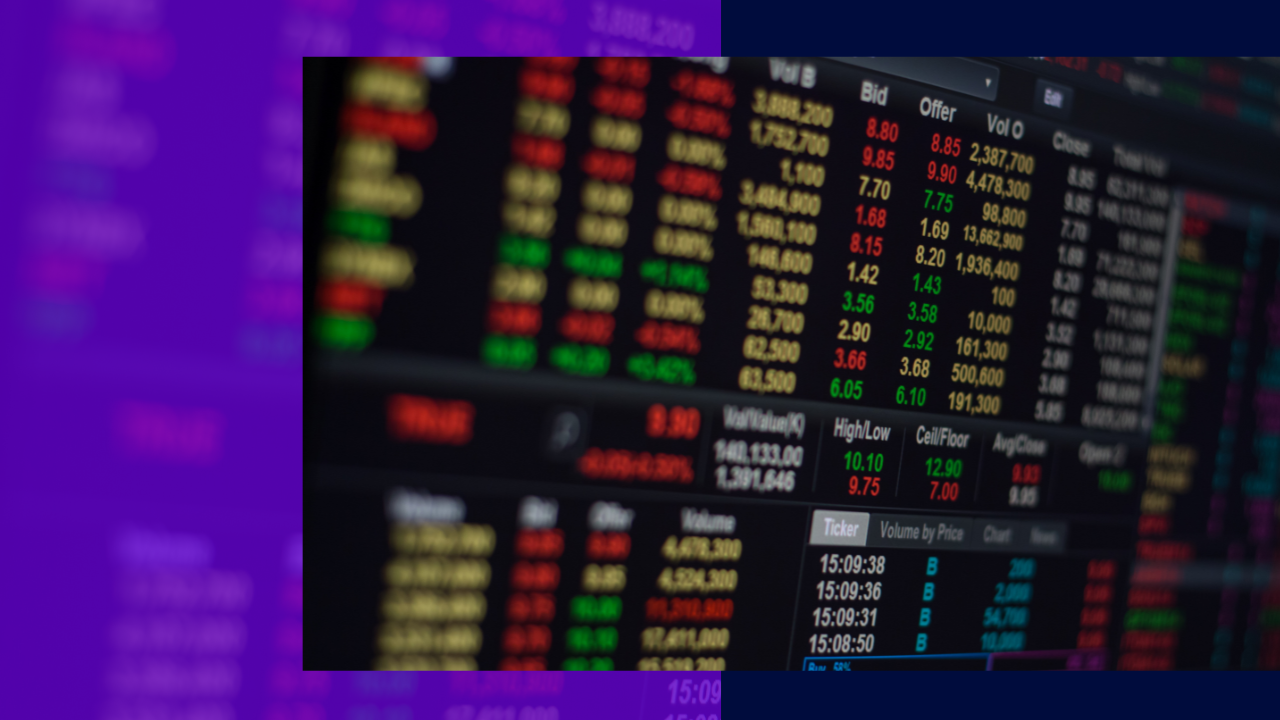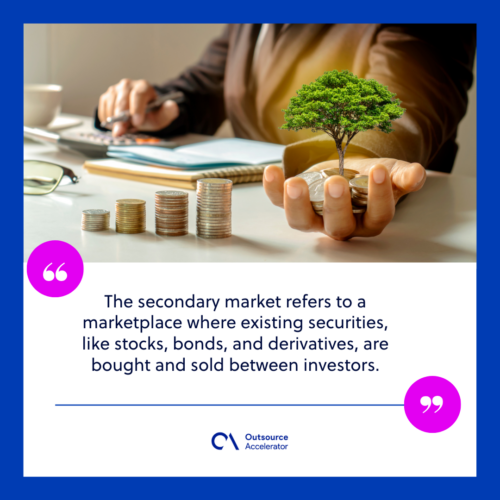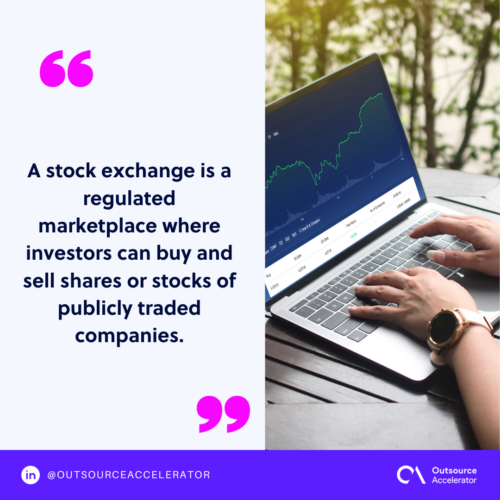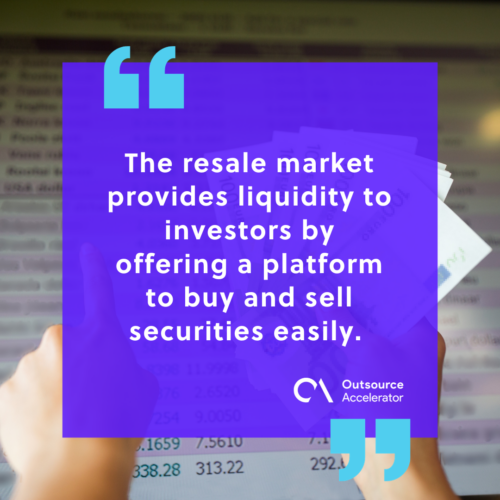Understanding the importance of the secondary market

The resale market plays a crucial role in the financial ecosystem. It provides profitability and investment opportunities to buy and sell already issued securities.
Hamilton Lane describes the secondary market as the private market with the most innovation and creativity around exits and liquidity options.
This article will help you learn more about the secondary market and how it works. Learn its difference from the primary market, its two main types, and the instruments commonly traded in it.
What is the secondary market?
The secondary market refers to a marketplace where existing securities, like stocks, bonds, and derivatives, are bought and sold between investors.
Unlike the primary market, where entities issue securities for the first time, the secondary market deals with the resale of these securities.
Basically, it creates a platform for investors to trade securities already stocked in the primary market. It allows them to enter or exit positions, adapt to changing market conditions, and manage their investment portfolios.

How does the secondary market work?
The secondary market functions as a dynamic arena for investors. Here’s how it works:
- Investor-to-investor transactions. In the secondary market, investors buy and sell securities on various platforms.
- Liquidity. The resale market provides liquidity to investors. It allows them to easily convert their investments into cash by selling their securities to other investors.
- Pricing mechanism. Prices of securities in this market are determined by supply and demand. If there is high demand for a particular security, its price will rise, and vice versa.
- Regulation. The secondary market is subject to regulatory oversight to ensure transparency and fairness in trading and to maintain market integrity.
Primary market vs. Secondary market
As mentioned, the primary market focuses on issuing new securities by companies, governments, or other entities. The secondary market revolves around the trading of already issued securities.
In the primary market, securities are offered to investors through initial public offerings (IPOs) or bond offerings.
Once these securities are bought and listed in the primary market, they can subsequently be traded in the resale market.
Here are some more distinctions between the two:
Primary market
In the primary market:
- Companies or government entities raise capital by selling new securities to investors
- First-time buyers are typically institutional investors and the general public
- Underwriters facilitate transactions
Secondary market
Meanwhile, in the secondary market:
- Investors buy and sell these securities among themselves, and the issuing company receives no proceeds from these transactions
- Ownership of securities may change hands multiple times
- Liquidity is a primary feature
2 types of secondary markets
The secondary market can be categorized into two main types:
Stock exchange
A stock exchange is a regulated marketplace where investors can buy and sell shares or stocks of publicly traded companies.
Examples of well-known stock exchanges include:
- New York Stock Exchange (NYSE)
- Tokyo Stock Exchange (TSE)
- National Association of Securities Dealers Automated Quotations (Nasdaq)
Companies list their shares on these exchanges, allowing investors to trade them.
Stock exchanges provide a centralized platform with transparent pricing and regulations that ensure fair trading practices.

Over-the-counter (OTC) market
OTC markets are decentralized, where securities are traded directly between parties without a formal exchange.
In this market, buyers and sellers connect through:
- Broker-dealers
- Investment banks
- Electronic trading platforms
It offers flexibility as it allows for trading securities that may not meet the listing requirements of stock exchanges.
This market typically involves less regulation than stock exchanges but still adheres to legal and financial requirements.
Instruments used in the secondary market
In the secondary market, the following financial instruments are traded:
Stocks
Stocks represent ownership in a company and are one of the most traded securities in the secondary market. Investors buy and sell stocks to gain a share of a company’s ownership and potential profits.
Bonds
Bonds, recognized as debt securities, are issued by governments, corporations, or other entities. They provide an avenue for borrowing funds and generating income streams.
Bonds pay periodic interest to bondholders and return the principal amount at maturity. They are popular among income-seeking investors.
Mutual funds
Mutual funds are pooled investments from multiple shareholders injected into a diversified portfolio of stocks, bonds, or other assets. Shares in mutual funds are bought and sold in the resale market.
Exchange-traded funds (ETFs)
ETFs are investment funds traded on stock exchanges, offering diversified exposure to a basket of stocks, bonds, or other assets.
They offer investors a convenient way to gain exposure to various asset classes and sectors.
Derivatives
Derivatives are financial contracts whose value comes from an underlying asset, like stocks, bonds, commodities, or currencies.
Futures, forwards, options, and swaps are considered as derivatives. They provide opportunities for investors to manage risk, speculate on price movements, and hedge their positions in the secondary market.
Why is the secondary market important?
Now that we have explored the ins and outs of the secondary market, let’s delve into why it holds such immense importance in the world of finance:
Liquidity
The resale market provides liquidity to investors by offering a platform to buy and sell securities easily. It ensures that investors can readily convert their investments into cash if needed.

Price discovery
The secondary market’s continuous trading leads to determining market prices for securities. The prices at which securities are bought and sold convey information about the market’s perception of their value.
Investment opportunities
Investors can find a wide range of investment opportunities in the resale market, whether by:
- Purchasing undervalued stocks
- Accessing high-yielding bonds
- Participating in derivatives trading strategies
Risk management
The secondary market allows investors to manage risks by hedging through derivatives. They can also adjust their investment positions based on market conditions.
Capital formation
A well-functioning secondary market encourages primary market activity by providing investors with exit opportunities. It stimulates interest in new issuances and facilitates capital formation in both markets.







 Independent
Independent




